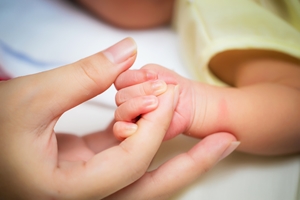As much as parents and those in travel nurse jobs would like it to be true, stress-free births are not always possible. Many babies are born prematurely and with low birth weight, which elevates the risk for infection, breathing difficulties, gastrointestinal issues and neurologic problems, according to Boston Children's Hospital. All of these symptoms contribute to a compromised well-being, potentially putting the babies' lives in jeopardy.
While many neonatal nurses encourage soon-to-be-moms to use preventative measures to mitigate these risks, like eating well during pregnancy and avoiding unhealthy habits, sometimes low birth weight can't be avoided. As such, health experts constantly analyze methods for this type of pediatric care post-birth. Recent research suggests that professionals working in travel nursing jobs may benefit from incorporating kangaroo mother care into post-birth care plans.
What is kangaroo mother care?
According to the World Health Organization, kangaroo mother care (KMC) is often utilized for pre-term infants and focuses on skin-to-skin contact between the mom and baby. Travel nurses can initiate this strategy in the hospital, encouraging mothers to exclusively breastfeed and continuously hold the infant. New parents can then use this method at home.
Good for baby
KMC carries benefits for all babies, pre-term or full-term. However, it has unique advantages for babies with low birth weight, as these little ones are at a greater risk for infant morbidity and require more intensive care. As the WHO explained, research has demonstrated that the efficacy of KMC is equivalent to conventional care like incubators, facilitates better bonding between the baby and mother, and brings advantages for severe morbidity through its emphasis on breastfeeding.
Research published in the journal Pediatrics further highlights these positive points. Grace Chan and colleagues from the Harvard T.H. Chan School of Public Health examined 124 studies that evaluated the effects of skin-to-skin contact on infant health. According to their findings, KMC reduced mortality by 36 percent in infants who weighed under 4.4 pounds. KMC also decreased their risk for infection by 47 percent. This strategy carried other benefits, too, including bigger head circumference growth and higher oxygen levels. Part of this stems from the fact that the mother's chest area is warm. The heat helps stop the baby's body temperature from declining, and it can also aid in stabilizing their heart and breathing rates.
KMC also made mothers more inclined to exclusively breastfeed at home, which carries unique advantages for newborns compared to formula feeding. As the U.S. Department of Health and Human Services explained, that very first feeding is especially beneficial, as the breast milk is loaded with nutrient-rich colostrum. Additionally, the formulation of breast milk changes with time, meaning it naturally adapts to a growing baby's needs. By continuing this form of feeding outside the hospital, mothers lower their children's risk of asthma, lower respiratory infections, sudden infant death syndrome, childhood obesity and Type 2 diabetes, among other complications.
Good for mom
KMC's emphasis on breastfeeding and skin-to-skin contact has benefits for moms, too. As the HHS noted, breastfeeding not only helps new moms' health after childbirth, but it may lower their risk for ovarian cancer, breast cancer and Type 2 diabetes.
Medical News Today highlighted research from October 2015 that suggested KMC can reduce moms' stress levels post-birth. The study led by Dr. Natalia Isazal, a neonatologist at the Children's National Health System in Washington, D.C., explained that new mothers experienced stress after being separated from their infants. This usually occurs if health care professionals isolate the baby from the mother in order to address the infant's health. However, skin-to-skin contact following that detachment brought stress levels back down. This can contribute to an overall better experience for the new parents.
Encouraging KMC with new parents
Travel nurses working in neonatal units should make efforts to encourage skin-to-skin contact between new moms and their babies. Most new moms will be more than happy to coddle their infant, but explaining the importance of this process may still be beneficial. For instance, parents may not realize that even placing a blanket between their chests and the infants can have a negative impact on KMC advantages. Additionally, don't limit this behavior to just moms. Dads can offer that same warmth and nurturing by practicing skin-to-skin contact.

